In 2014-2017, the financial system of Ukraine experienced a real shock. Then almost 100 banks were declared insolvent, and thousands of Ukrainians lost their savings.
Although the banking market has been almost completely cleaned up in recent years, and Ukrainians have begun to trust banks with their money again, the history of the "bankruptcy" is still being written. First of all, because the former owners of the bankrupt establishment were not punished.
Recently, the government, the National Bank and the Individual Deposit Guarantee Fund (FGVFL) seem to have found a way to start a new page in the history of the financial system.
The price of this step is a war against the former owners of insolvent banks on all fronts. First of all, abroad.
A compromise at a price of 111 billion
In 2014, when the banks began to "collapse" one by one, the means for paying the amount guaranteed by the state (200 thousand UAH) to the Individual Deposit Guarantee Fund ran out after the second bankruptcy. In April-May 2014, the National Bank liquidated the "Daniel" and "Real Bank" banks. The next one was Brokbiznesbank. Then, at the beginning of June 2014, few could have imagined that this was only the beginning, and that in the next few years, another 93 institutions would withdraw from the banking market. There is no money left in the Fund for the return of 200 UAH guaranteed by the state to its investors.
In a cash-strapped situation, the Fund turned to the National Bank and the government for help, which agreed to lend almost UAH 80 billion. However, despite the crisis, the loans were not free and not even on preferential terms.
FGVFL received money at market interest: on loans from the National Bank - at 12,5-14% per annum, on loans from the government - at 9,99-12,5% per annum.
Although the fund fully settled with the National Bank in January 2019, and it pays the government's debts ahead of schedule, its total liabilities still significantly exceed its assets. This poses a threat to the ability of FGVFL to fulfill the duties assigned to it.
By the end of 2031, the Fund will pay about UAH 111 billion on government loans, of which UAH 64 billion is interest. It is not surprising that the IMF became interested in the topic of FGVFL debts. Thus, the approval of the restructuring plan was one of the requirements of the creditor to Ukraine within the framework of the current cooperation program.
In September 2020, the National Bank, the Ministry of Finance and the FGVFL agreed on a new plan. According to him, interest on the main debt of the Fund to the government will be forgiven, and the body of the loans will be repaid with excess funds accumulated by the fund.
For the normal operation of the Fund, assets in the amount of more than 2,5% of the guaranteed amount of all bank deposits are sufficient. That is, everything that FGVFL collects more than this value will be transferred to the budget.
However, the write-off of interest on FGVFL debts will not be unconditional. In exchange for it, the Fund must intensify work on recovery of assets from the perpetrators of the banking crisis — former owners of insolvent banks and persons connected with them. All money that can be collected or condemned will go to the budget.
The fund is already actively suing the former owners of bankrupt banks in Ukraine, but such a struggle does not always bring results. Such lawsuits are often delayed due to the state's unconsolidated position: several law enforcement agencies can handle the same case against some ex-bankers.
And the very ability of the courts to resolve disputes in matters related to banks has been undermined after the scandalous decision of the District Administrative Court of Kyiv, which found the nationalization of Privatbank illegal. Therefore, the Fund decided to start a new stage of the struggle for money withdrawn from banks by Ukrainians abroad.
Who will the Fund sue?
According to the publication's sources, FGVFL has already started preparing for international trials against the ex-owners of eight insolvent banks. For this, the fund held tenders for the purchase of relevant services of legal companies.
The progress in the claim work is at different stages: somewhere deals with lawyers have been signed recently, and somewhere else the collection of information about the available assets of former bankers in foreign jurisdictions is underway.
According to experts working on the preparation of lawsuits, in some cases the Fund attracts the well-known company Kroll, which at one time revealed a scheme to withdraw money from Privatbank.
"Finance and credit"
The bank of former People's Deputy Konstantin Zhevago was declared insolvent by the NBU in September 2015, however, problems in settlements with his depositors began long before the introduction of a temporary administration.
When making a decision to withdraw the bank from the market, the regulator noted that the lion's share of the bank's loans were issued to companies associated with Zhevago. Due to some of these loans, the businessman is being sued by the National Bank itself, trying to recover the refinancing loans provided.
According to the investigation, the scheme for withdrawing money from the bank looked like this: in 2007-2014, an offshore company opened credit lines to Zhevago companies in foreign banks, and the bank "Finance and Credit" provided a guarantee of more than 113 million dollars for them. In 2015, these banks these funds were collected from the "Finance and Credit" accounts. The deposit was written off immediately after the bank was declared insolvent.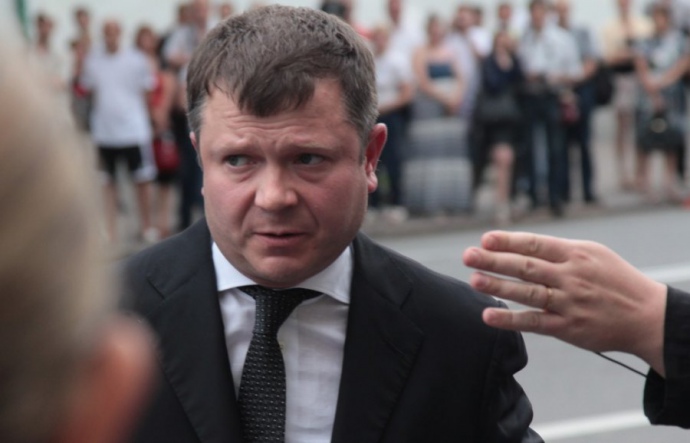 The assets of the former owner of the bank "Finance and Credit" Konstantin Zhevago are to be sought outside of Ukraine
The assets of the former owner of the bank "Finance and Credit" Konstantin Zhevago are to be sought outside of Ukraine
Zhevago is one of the few ex-owners of insolvent banks, in whose case the investigation led to charges. True - in absentia.
Since the end of 2019, the businessman has been wanted internationally. Two years before that, the court arrested a number of Ukrainian assets of the oligarch, in particular, the property of AvtoKrAZ, the Stakhanovskogo wagon-building plant and the Rosava plant.
The case regarding Zhevago's main asset — Poltava GOK — is being considered in Ukrainian courts. The state wins with variable success. In October 2020, the Court of Appeal of Kyiv rejected Konstantin Zhevago's Ferrexpo AG Switzerland complaint about the freezing of 50,3% of GOK shares.
Perhaps, this time the state will try to take away from the oligarch not Ukrainian assets, but a company registered abroad, which also owns Poltava GOK.
"Delta Bank"
The largest bankrupt Ukrainian bank, which the state refused to save, belonged to Mykola Lagun. On March 3, 2015, the NBU suddenly declared Delta Bank insolvent for hundreds of thousands of people.
At that time, the bank was the main competitor of "Privatbank" and belonged to the "system forming" banks for the state. That is, in case of difficulties, he applied for nationalization, not for liquidation. Many considered the ego "too big to fail." The government decided to remind the ex-owner of "Delta Bank" Mykola Lagun about his obligationsх
The government decided to remind the ex-owner of "Delta Bank" Mykola Lagun about his obligationsх
The schemes used in "Delta Bank" were especially inventive. One of them was nicknamed the "printer" by the liquidators: the bank's management printed fictitious SWIFT messages and recorded fictitious funds on the balance sheet.
"Delta" did not hesitate to withdraw money and cash, disguised as real customers: on the accounts of 56 thousand people, credit limits were increased, their signatures were forged and funds were withdrawn from several bank branches.
The interim administration discovered that the stated value of the bank's assets, 87,5 billion hryvnias, was actually three times less — 29 billion 200 million hryvnias. That is, tens of billions were withdrawn from the bank.
Although Laguna's assets have been seized in Ukraine, and the former banker himself has been banned from traveling abroad, compensation for losses caused by the bankruptcy of one of the country's largest financial institutions is still delayed.
The prospects of punishing the former owner of "Delta Bank" abroad are also rather vague. In order to recover Laguna's assets in other countries, they must first be found, and there has been little success in this direction yet.
"National Credit"
This bank was declared insolvent on June 5, 2015. According to the FGVFL, on the eve of this decision, about UAH 600 million were withdrawn from it.
"If on January 1, 2015, the balance sheet value of the bank's assets exceeded 2 billion 500 million UAH, then at the time of the introduction of the temporary administration (June 8), this amount was reduced to 1 billion 900 million as a result of the application of various schemes.
The estimated value of all the bank's assets turned out to be even lower — only UAH 178 million, or 9% of the amount indicated on the paper," the fund explained.
According to the investigation, funds were withdrawn from the bank using a correspondent account at Bank Frick & Co AG (Liechtenstein).
The largest shareholder of "National Credit" was Andrei Onistrat, who owned 30,4% of the shares. In 2018, the police informed him about suspicion of embezzlement of UAH 597 million from bank depositors. The banker himself denies his guilt.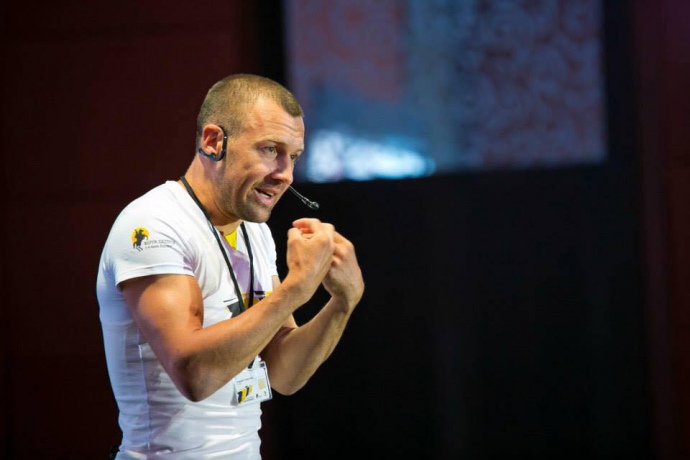 Andrei Onistrat claims that he has no assets abroad
Andrei Onistrat claims that he has no assets abroad
In a comment to the publication, Onistrat noted that he does not understand what the FGVFL will sue him about, because he has no assets abroad. "I think this is done for the personal enrichment of the Foundation's management. They will spend a large sum on lawyers, and then ask them for a "kickback," Oneistrat is convinced.
While the investigation is ongoing, Onistrat became one of the teachers of the educational series of the Ministry of Digital Transformation "All about blockchain, bitcoin and cryptocurrencies."
Imexbank
The ex-owner of Imexbank was Leonid Klymov, the president of the football club "Chernomorets" and the owner of the stadium of the same name in the center of Odessa. Actually, most schemes for withdrawing funds from the bank are connected with the stadium.
Starting in 2011, various companies accepted loans, which were secured by the stadium. The closer it was to the date of declaring the bank insolvent, the more loans the bank granted against the collateral of this construction.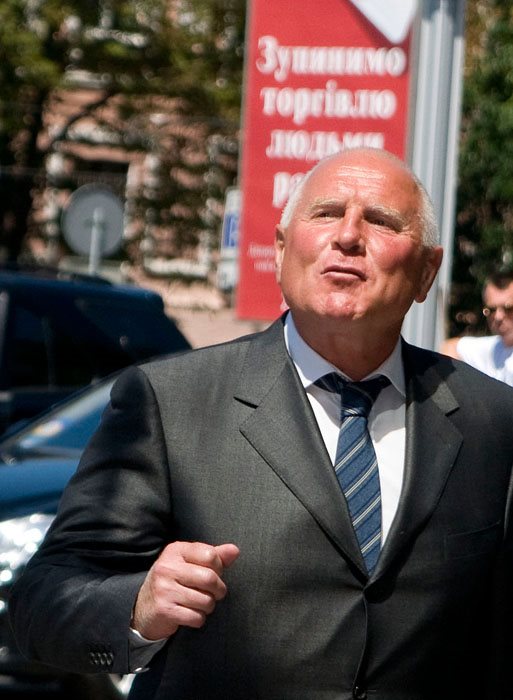
Ex-owner of "Imexbank" Leonid Klymov
In December 2014, the "Chernomorets" stadium ensured the fulfillment of 41 loans for 8 billion 300 million UAH. Despite the fact that in May 2017, the stadium in the center of Odessa was estimated at 1 billion 500 million UAH, and it was sold with the twentieth demand for only 194 million hryvnias.
In 2020, the National Bank of Ukraine succeeded in collecting money from the former owner of Imeksbank. The court ordered Klymov to pay UAH 309 million to the NBU for a refinancing loan issued by the bank (Klymov was a guarantor for this loan). Now they are trying to recover funds from the ex-owner of the bank even abroad.
Brokbiznesbank
The bank of Sergei Kurchenko, close to Viktor Yanukovych, turned into one of the regime's enrichment centers in recent years before being withdrawn from the market.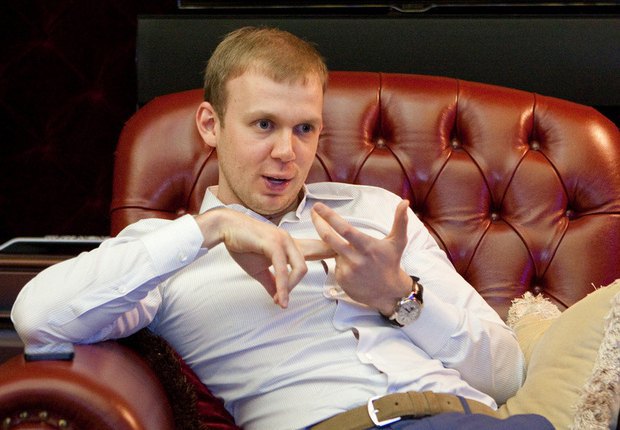 It is not difficult to calculate how much the ex-owner of Brokbiznesbank Sergey Kurchenko owes to the state
It is not difficult to calculate how much the ex-owner of Brokbiznesbank Sergey Kurchenko owes to the state
The institution was declared insolvent in 2014. When the bank began to be liquidated, it was discovered that 95% of the loan portfolio was not serviced. Almost 80% of loans the bank gave to persons connected with Kurchenko.
For many agreements, even the originals of the agreements were missing. Most loans were issued without any collateral or had "junk" collateral, i.e. issued only on paper.
With the help of various schemes, billions of depositors' hryvnias were withdrawn from the bank, which were deposited in the accounts of persons connected with the bank's owners.
When the Deposit Guarantee Fund turned to the enforcement service to collect money from the bank's debtors, it turned out that they were collecting nothing. Perhaps attempts to recover assets from the ex-owner of the bank abroad will be more successful.
Since February 2014, Kurchenko has been outside Ukraine, probably in Russia, hiding from the investigation. He is wanted.
FIDOBANK
When withdrawing the institution from the market in May 2016, the National Bank reported that "withdrawal of funds from the bank to persons related to its owners did not occur." However, this first opinion of the regulator turned out to be incorrect.
As the Deposit Guarantee Fund later discovered, the ex-owner of the bank, Alexander Adarich, withdrew billions of hryvnias and quality assets from the institution. As a result, the real value of assets turned out to be almost five times less than the "on paper" value.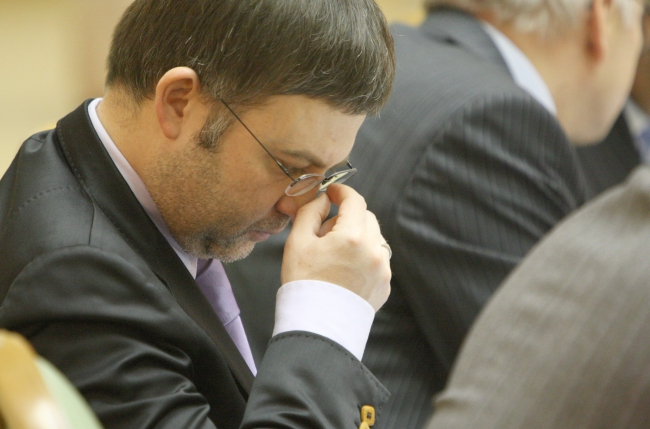 Former owner of FIDOBANK Alexander Adarich
Former owner of FIDOBANK Alexander Adarich
In 2013, the former owner of FIDOBANK used depositors' funds to purchase Erste Bank. In addition, allegedly to improve the financial condition, the bank provided a 1,5 billion hryvnias loan to a controlled factoring company, the directors of which were employees of the FIDOBANK security service.
The same companies, on the eve of the institution's bankruptcy, bought out loans from him, which were serviced on time. That is, the borrowers paid no longer to the bank, but to persons associated with its managers.
"Ukrainian Professional Bank"
UPB was declared insolvent in May 2015. Evgeny Balushka was the owner of Ego through a number of companies. According to unofficial data, the institution was also influenced by the co-owner of the Milkyland group, Anatoly Yurkevich.
On the eve of the introduction of the temporary administration, 2 billion hryvnias worth of assets were withdrawn from the bank. The former owners wanted to squeeze the maximum out of the bank and even sold off household appliances, safes, computers and shelves. But the money from the sale of the property did not go to the bank account and did not pass through the cash register.
In June 2015, another 10 million dollars were withdrawn from the bank through the bank Frick & Co (Liechtenstein). FGVFL and the National Bank tried to prevent this operation, but they failed to stop the withdrawal of funds. As a result of these schemes, the estimated value of UPB's assets turned out to be 78 times lower than the balance sheet value.
"Platinum Bank"
The institution was declared insolvent in 2017, already after the nationalization of Privatbank. The NBU recognized Odessa businessman Boris Kaufman and citizen of Israel Grigory Gurtovoy as its informal owners.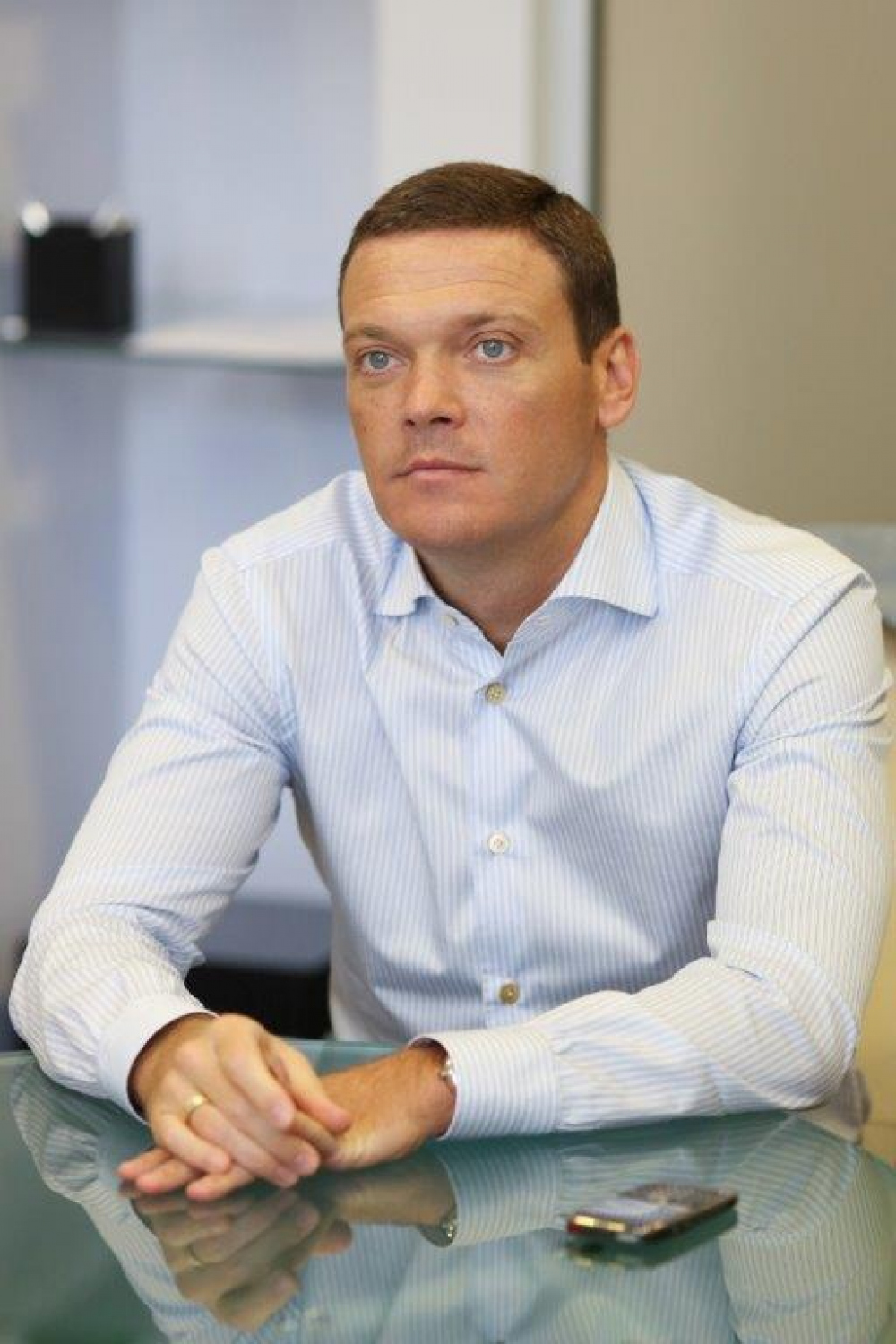 The former owner of Platinum Bank is Borys Kaufman
The former owner of Platinum Bank is Borys Kaufman
Kaufman is also a co-owner of the cigarette distributor "Tedis Ukraine".
The bank was unprofitable for a long time, its capital was negative, but the regulator refused to withdraw it from the market. Last but not least, this was connected with the fact that the former employee of the bank, Ekaterina Rozhkova, became the deputy head of the NBU.
According to the Deposit Guarantee Fund, almost 95,5% of the bank's corporate loans were issued to persons close to its owners.
In 2020, FGVFL filed a lawsuit for 1,5 billion hryvnias against the management of Platinum Bank, including Rozhkova, but the court did not consider this case then.
Are there any prospects
Probably, the Guarantee Fund will not stop at these eight banks. As a result, the hunt for foreign assets of other ex-owners of the bankrupt institution may begin. It is too early to say whether this struggle will be successful. Ukraine has no experience in this matter.
The lawsuit between the nationalized PrivatBank and its ex-owner Igor Kolomoisky and Gennady Bogolyubov has been going on in the High Court of England and Wales for four years. During this time, "Privatbank" succeeded in imposing an international arrest on the assets of its former owners, however, there is no talk of returning the 2-3 billion dollars claimed in the lawsuit.
A single conclusion can be drawn from this case: international courts are very long.
"For Cyprus, more patience is needed, the process there can last three to five years. In Liechtenstein, this process will take three to four years. Approximately the same time frame will be in the English courts, however, from the point of view of the procedural burden, the case in the English courts will be more saturated than in Liechtenstein or another country of continental law," said Danyil Volkovetsky, managing lawyer of the Kinstellar MUFF.
He reminds that when it comes to asset recovery lawsuits, few will win the case. It will take several more years to find these assets and recover them in foreign jurisdictions.
Perhaps that is why the Ministry of Finance does not support the idea of restructuring the FGVFL debt on such terms. After all, without restructuring, the budget will annually receive additional billions of hryvnias in interest, which will finance government projects.
In particular, it is with the money of FGVFL that the government finances the "5-7-9" program, and in 2021 the Cabinet of Ministers launched the "7% mortgage" promised by President Volodymyr Zelensky.
In addition, international courts are an expensive pleasure. The services of lawyers in these cases can be measured in millions of dollars annually.
"It is necessary to evaluate the expediency of the process in a specific jurisdiction and available procedural tools. For example, if the English court will be the most effective from the point of view of the possibility of consideration of a complex dispute and further successful recovery of assets, then the cost of legal expenses in this category of disputes should not be a determining factor," adds Volkovetsky.
The opening of the international judicial front in the war against the ex-owners of bankrupt financial institutions is also supported by the former chairman of the National Bank Valery Gontareva. It was during her tenure that the "bankruptcy" occurred.
"I fully support the initiative of FGVFL. As you can see, nothing is happening in our country. The NBU and the Fund initiated thousands of lawsuits against the owners of banks withdrawn from the market as early as 2015. It is already the middle of 2021, and nothing is happening. It is clear that international jurisdictions are a long process, but I have no doubt that it needs to be done," she said.


















